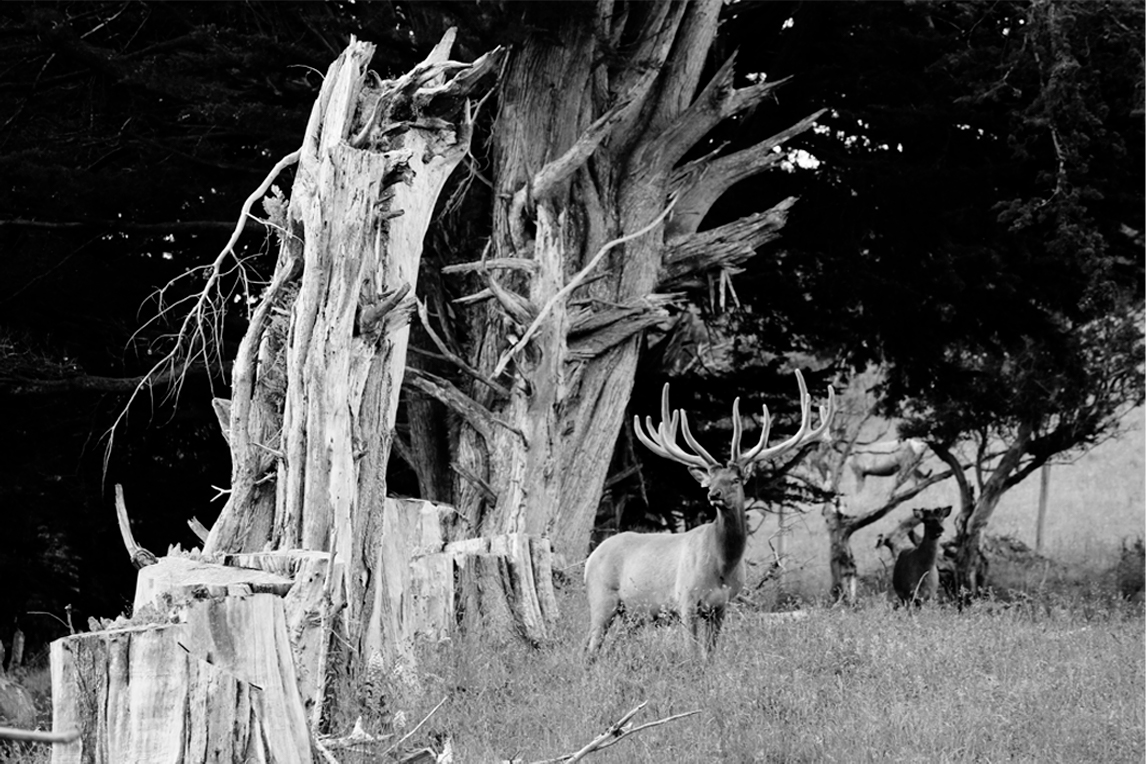Sep 27, 2024
Click a heading below or scroll down to read
Main
- DINZ board chair Paddy Boyd on governance
- Greenhouse gas emissions from New Zealand deer farming systems: current and future options
- Obituary: James Guild
In Brief
- Velvet China market access update
- DINZ, NZDFA engage with farmers in Feilding
- Government pauses freshwater farm plans
- Facilitators conference breathes renewed life into Advance Parties
- Afforestation brings decreasing stock numbers, more pests
- DINZ staff to star in velvet training video in South Korea
- New addition to the DINZ team
Velvet China market access update
Progress continues to be made in finalising the two new Health Certificates required for velvet exports this season. Following MPI's notice issued on 9 September, this procedural work continues.
There is still work to be done on the China side, particularly as importers seek clarity from their in-charge officials regarding updated import licenses and amended HS Codes. DINZ, alongside other key players, is actively encouraging stakeholders within China to advance these aspects simultaneously.
With the upcoming National Day Holiday in China, DINZ is pushing for all possible urgency ahead of the holiday period. Stay tuned for further developments.
DINZ, NZDFA engage with farmers in Feilding
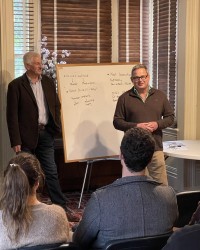
DINZ Chair Paddy Boyd and CEO Rhys Griffiths
With all that’s going on in the deer industry at present, members of the Deer Industry NZ (DINZ) board and the NZ Deer Farmers’ Association (NZDFA) executive committee, along with the DINZ CEO and staff, attended a Q&A session in Feilding on 17 September, hosted by the Central Region branch of the NZDFA.
The event had between 50-60 farmers in attendance, with most from the lower North Island but a couple from further afield. It was a good evening, with updates on market access to China for velvet and venison markets going forward, including the North America Retail Accelerator (NARA) project, the main areas of discussion.
Farmers will be pleased to hear that significant progress is being made toward restoring access for New Zealand frozen deer velvet into the Chinese market. The negotiations have been thorough, and recent interactions with Chinese authorities have been encouraging, with agreement reached on the text of the new arrangement.
MPI has issued an FYI advising the export certificate templates and establishment lists are being updated to enable exports to resume and will advise implementation dates once agreed with China. MPI is undertaking this work with urgency so that an export pathway is available for frozen velvet at the start of the upcoming 2024/25 season, in time for when normal exports would start.
The Q&A session was followed by some venison finger food cooked up by DINZ executive chef Graham Brown. Each dish – from Cornish pasties to Ruben sandwiches to venison tartare in prawn crackers – were made from “lesser” cuts, Brownie explained.
It was a good evening, with excellent engagement with our producers, and we look forward to further such opportunities.
Government pauses freshwater farm plans
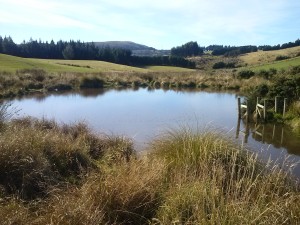 On 3 September, the government announced that it would be pausing the rollout of freshwater farm plans “until system improvements are finalised."
On 3 September, the government announced that it would be pausing the rollout of freshwater farm plans “until system improvements are finalised."
In the announcement, Minister Andrew Hoggard said, “Freshwater farm plans support farmers in managing freshwater risks, but the current system is too costly and not fit-for-purpose.
“We want freshwater farm plans to acknowledge the good work many farmers are already doing. The key thing for farmers is to make a start and keep up their efforts – their work will not be wasted."
While Deer Industry New Zealand (DINZ) supports Freshwater Farm Plans, on 14 June, DINZ provided feedback to the Ministry for the Environment highlighting that these plans must align with industry codes of practice, specifically the Deer Industry Environmental Management Code of Practice (2018) - a comprehensive industry guide that addresses deer-specific environmental challenges at farm level.
DINZ Environmental Stewardship Manager Luka Jansen advised that while Farm Environment Plans can effectively manage on-farm risks to support environmental improvements, “It’s crucial that freshwater farm plans gain farmer buy-in to avoid being perceived as a burdensome and costly regulatory exercise.”
She is pleased that the government has listened and looks forward to collaborating with the Ministry in the coming months to create a freshwater farm plan regime that truly benefits farmers.
“I know deer farmers are committed to preventing soil and water degradation, and many farmers already have an environmental farm plan in place. Although there is no such thing as a perfect plan, having goals alongside real-world on-farm management practice is essential. Now’s the time for the industry to focus on proven solutions without the push from unnecessary regulations.”
Facilitators conference breathes renewed life into Advance Parties
Surveying the boundaries at High Peak
In late August, nine Advance Party (AP) facilitators and two AP lead farmers gathered in Canterbury for two days of facilitation skills development, with a particular focus on integrated farms plans.
The conference saw attendees at High Peak on the first day, followed by classroom sessions and discussions the following day.
The conference was a chance to bring the facilitators together to reconnect and share how their respective groups are doing, what their focuses will be going forward, and what challenges they may be facing.
“As a member of an AP Group, I feel the groups have been a saviour, supporting struggling farmers through excessive regulations, political uncertainty, lesser profits, higher interest rates, succession, improved production outcomes and more,” says Claire Parkes, one of the two AP lead farmers at the conference.
For Parkes, one of the key topics for discussion was around NZFAP Plus – the voluntary, higher-level sustainability standard.
“The discussion around NZFAP Plus was very important,” Parkes says, “as I believe that is the direction that all farmers should be heading in to address standards and regulations for the future. It’s being led by our exporters and is not political, unworkable, unrealistic or idealistic. I would hope all facilitators go back and encourage farmers to work towards FAP Plus. Our group has taken up this challenge."
“We have approximately 190 farmers engaged in AP groups that have shown the benefit of working together to improve their own farm businesses and support each other,” says John Ladley, DINZ industry capability manager.
“DINZ is supportive of the continuation of these groups and their whole-of-farm approach, so the question is more about how DINZ can continue to support them in the changing environment we are in – socially, economically and environmentally – as well as how these groups can best share what they have learned so others may also benefit.”
Afforestation brings decreasing stock numbers, more pests
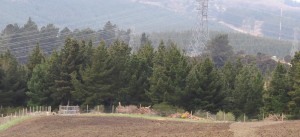 The Ministry for the Environment recently sought public feedback on the second emissions budget for 2026-2030 (ERP2). Luka Jansen, DINZ environmental stewardship manager, expressed concerns about the proposed budget in the DINZ submission. As carbon prices rise, land use changes continue to impact the deer, sheep, and beef industries. The shift from food-producing land to forests is causing irreversible damage to rural areas. Whiile there has been a slowdown in sales, farms are still being converted.
The Ministry for the Environment recently sought public feedback on the second emissions budget for 2026-2030 (ERP2). Luka Jansen, DINZ environmental stewardship manager, expressed concerns about the proposed budget in the DINZ submission. As carbon prices rise, land use changes continue to impact the deer, sheep, and beef industries. The shift from food-producing land to forests is causing irreversible damage to rural areas. Whiile there has been a slowdown in sales, farms are still being converted.
Back in May, the Climate Change Commission’s initial review underestimated the impact of afforestation on livestock numbers. Beef + Lamb New Zealand’s modeling suggested a 35% decline in sheep and beef stock numbers by 2050, with a potential $30.8 billion loss in export revenues during that time. The government’s emission budgets, and the pace of farm conversions, undermine goals to double export value and improve economic resilience. It’s crucial for the government to recognise the full consequences of afforestation and the burden of their policy decisions.
Many of the challenges we face today, such as climate change and economic inequality, are complex and interconnected. To achieve long-term, sustainable outcomes for all New Zealanders, consideration of various perspectives is needed. At present, however, it feels as though farmers' perspectives are being ignored.
Another issue interconnected with climate change is pest control. Federated Farmers have recently raised concerns about increasing pest numbers, noting that the Department of Conservation’s (DOC) $13 million budget is insufficient. Pests cost Kiwi farmers $213 million annually to protect agricultural exports and prevent animal diseases like tuberculosis and leptospirosis spreading to humans. A recent survey found that farms bordering DOC land are particularly affected.
Jansen warns that the problem will worsen as more farms convert to carbon farms. Between 2019 and 2022, around 180,000 hectares of sheep and beef farms were sold for forestry, reducing livestock units by approximately 1.4 million.
“On paper, it may sound like New Zealand is reducing emissions, but who’s calculating the emissions from possums, wild pigs, goats and deer? Whole farm conversions will be in vain, particularly if pest animal numbers continue to rise, significantly reducing native undergrowth and vegetation on private land and in our national parks. This correlates to a reduction in carbon stores in New Zealand.”
DINZ staff to star in velvet training video in South Korea
 Several Deer Industry New Zealand (DINZ) staff will feature in a video made for educating traditional Asian medicine pharmacists. The video, which was shot on location in New Zealand, will form part of training materials from the Association of Korean Oriental Pharmacy (AKOP), which holds mandatory training sessions for its 3,300-strong membership base each year through its online portal.
Several Deer Industry New Zealand (DINZ) staff will feature in a video made for educating traditional Asian medicine pharmacists. The video, which was shot on location in New Zealand, will form part of training materials from the Association of Korean Oriental Pharmacy (AKOP), which holds mandatory training sessions for its 3,300-strong membership base each year through its online portal.
In early 2024, AKOP was introduced to DINZ by HanPure, with an idea for the training video. The project was led by DINZ Associate Markets Manager Virginia Connell and featured Connell, DINZ CEO Rhys Griffiths and Industry Capability Manager John Ladley, and Dr. Stephen Haines, Senior Scientist at AgResearch.
“Having the New Zealand deer story told in our words, as a resource for Korean pharmacists in-training, is an awesome opportunity for us,” says Connell.
“By showcasing how our deer live, our strict passion for animal welfare and farming practices, this will help bridge the gap between our deer products and the pharmaceutical products they end up in. As the pharmacists gain this understanding of New Zealand velvet, they can then take this knowledge into the industry first-hand, advocating for New Zealand velvet and its point of difference from other suppliers out there.”
The video gives a summary of the New Zealand deer velvet industry, answers frequently asked questions through interviews, reviews the contents of the Deer Velvet Technical Manual (Version 7), and touches on deer farming and the velvet harvest, along with the stringent regulations and standards the velvet industry insists on.
Thanks to Alex Chung, CEO of HanPure for making the introduction; the Association of Korean Oriental Pharmacy for recognising the value of NZ velvet and sharing the knowledge that New Zealand velvet representatives have; and a special shoutout to DINZ’s man in South Korea, Jongkyu Jang, who oversaw the project and provided translation for the Korean subtitles.
New addition to the DINZ team
Some of you may know Sara Elmes, Industry Capability Manager at DINZ. Sara and her partner, John, recently welcomed a new addition to their family, and DINZ wishes them all the very best, as well as a well-sleeping wee one.
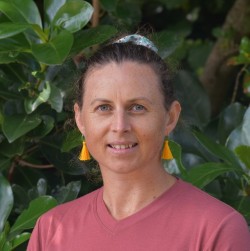
Sarah O'Connell
DINZ is pleased to announce the appointment of Sarah O’Connell to the fixed term maternity cover role for Project Manager – Industry Capability.
Sarah is currently an On Farm Support Regional Advisor at MPI, a position she has had since February 2022. In this role, Sarah works closely with farmers, helping them identify key needs and connecting them with the appropriate resources to achieve their goals. She also plays a key role in developing and delivering regional strategies and programmes, ensuring that the organisation is effectively represented in farmer-facing interactions. She brings a strong background in agricultural management, extension and facilitation, and a passion for New Zealand’s primary industries.
Prior to her current position, Sarah spent five years as a consultant with The AgriBusiness Group, where she was responsible for managing facilitation and extension programmes for farmer action groups and events. Additionally, Sarah contributed to small-scale applied research projects, handled financial management, and maintained crucial industry connections. Her expertise in organising events and managing time effectively was key to the success of these programs.
Sarah was previously the Extension Manager at Beef + Lamb New Zealand. Here, she worked with farmers and industry stakeholders to deliver educational field days, workshops, and seminars tailored to the needs of sheep and beef farmers. Sarah's responsibilities included managing a regional budget, reporting on activities and farmer sentiment to the board, and fostering relationships with farmers, industry representatives, researchers, and regulators.
Sarah will start with DINZ at the end of October.
Other news
- Breakthrough in China deer velvet impasse (interest.co.nz)
- Dairy, velvet hoping for smoother progress in Korea (farmersweekly.co.nz)
- From Wild Herds to Modern Farms: NZ's Deer Farming Journey (Rural Exchange)
- Green efforts are slowing, but not disappearing (farmersweekly.co.nz)
- Rural areas being ‘hollowed out’ by pine forests, scientists warn (Stuff.co.nz)
- Food safety key to future China trade (farmersweekly.co.nz)

EVENTS
Click on the bold links below to get more information about any of the events.
- Beef + Lamb Climate Change Policy Workshops - Various locations between 7th and 21st October
- 2024 Central Regions and Taihape Velvet competition - 5:00pm Saturday 23 November 2024, Coach House Museum, 127 South Street, Feilding
- 2024 North Island Velvet Competition (NIVC) - 4:30pm, Saturday 30 November 2024, Napier Sailing Club, 63 West Quay, Ahuriri, Napier
- 2024 National Velvet Competition and Awards - 5.00-11.00pm Saturday 14 December 2024, Ascot Hotel, Invercargill. Cost: TBA. Contact: Jane Campbell, southlanddeerbranch@gmail.com
- SAVE THE DATE!!! 2025 50th Anniversary Deer Industry Conference - Tuesday 13 May 2025, Queenstown. Details to follow.


